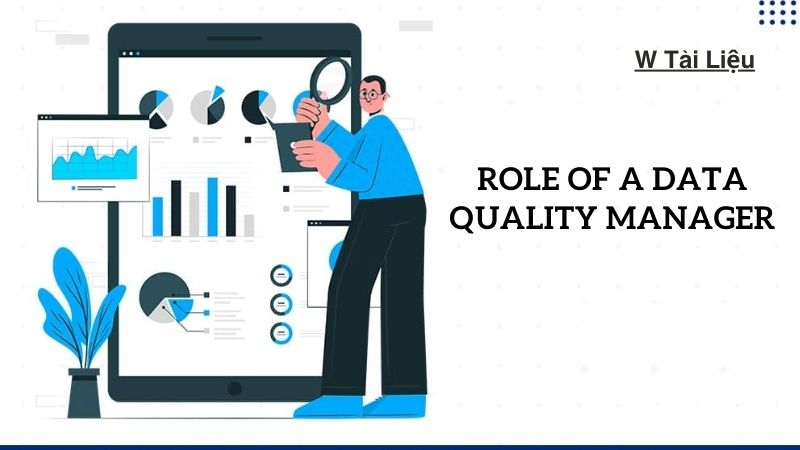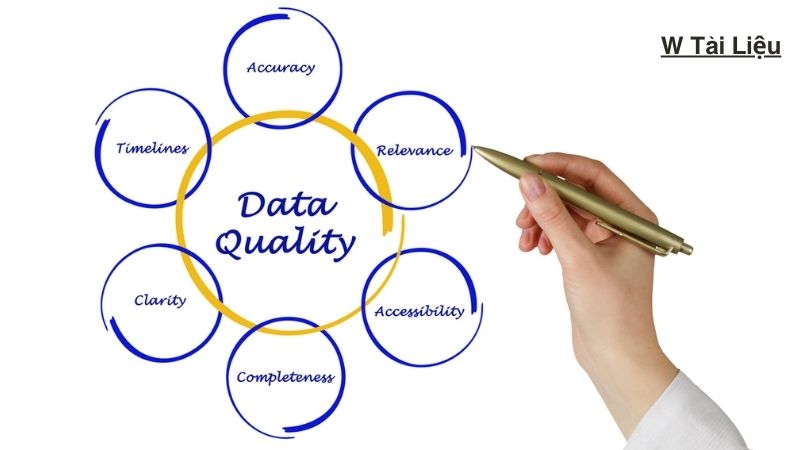The Role of a Data Quality Manager in Ensuring Reliable Data Governance

In today’s data-driven world, the importance of accurate, reliable data cannot be overstated. From business decisions to customer interactions, data serves as the foundation for informed choices and successful outcomes. However, with the vast amounts of data being generated and utilized by organizations, ensuring its quality and integrity has become a significant challenge. This is where the role of a data quality manager becomes indispensable. With Wtailieu will discover detail about this role in your business.
Defining the Role of a Data Quality Manager
A data quality manager is a professional tasked with overseeing the integrity and accuracy of data within an organization. Their primary responsibility lies in establishing and implementing processes, policies, and procedures that maintain high standards of data quality throughout its lifecycle. The data quality manager acts as a guardian, ensuring that data is not only accurate and complete but also consistent and reliable.

Data Governance Frameworks
One of the core functions of a data quality manager is to develop and implement robust data governance frameworks. These frameworks define the processes and controls necessary to manage data effectively across the organization. By establishing clear guidelines for data management, the data quality manager ensures consistency and accountability in how data is collected, stored, processed, and utilized.
Assessing Data Quality
Regular assessment and evaluation of data quality are essential tasks for a data quality manager. Through audits and analysis, they identify discrepancies, inaccuracies, and inconsistencies in data sets. These assessments provide valuable insights into the health of the organization’s data infrastructure and help prioritize areas for improvement. By leveraging data quality assessment tools and methodologies, the data quality manager ensures that data remains accurate and reliable over time.

Setting Standards and Policies
To maintain consistency and integrity in data management practices, the data quality manager establishes data standards, policies, and procedures. These standards define the criteria for data quality and provide guidelines for data collection, validation, and maintenance. By enforcing adherence to these standards, the data quality manager ensures that data is consistently accurate, complete, and reliable across the organization.
Data Cleansing and Enrichment
Data cleansing, or the process of identifying and correcting errors and inconsistencies in data sets, is a critical function performed by the data quality manager. Through data cleansing activities, they remove duplicates, reconcile discrepancies, and standardize formats to ensure data accuracy. Additionally, the data quality manager may oversee data enrichment initiatives, which involve augmenting existing data with additional information to enhance its value and utility.

Monitoring Data Quality
Establishing mechanisms for monitoring data quality is another key responsibility of the data quality manager. By tracking key metrics and performance indicators, they can identify deviations from established standards and address them promptly. Continuous monitoring allows the data quality manager to proactively identify and mitigate potential issues before they impact business operations or decision-making processes.
Training and Awareness
To promote a culture of data quality within the organization, the data quality manager provides training and guidance to staff members on best practices and procedures. By raising awareness about the importance of data quality and providing ongoing education, they empower employees to take ownership of data quality in their respective roles. This collaborative approach fosters a culture of accountability and continuous improvement in data management practices.
Collaboration Across Departments
Effective collaboration with stakeholders from various departments is essential for the data quality manager to understand their data requirements and challenges. By working closely with IT, finance, marketing, and operations teams, they can align data quality initiatives with business objectives and ensure that data meets the needs of end-users. This cross-functional collaboration enables the data quality manager to address diverse data management challenges and drive organizational success.
Risk Management
Poor data quality can pose significant risks to an organization, including compliance violations, operational inefficiencies, and reputational damage. As such, the manager for data quality plays a critical role in identifying and mitigating these risks. By implementing robust data quality controls and risk mitigation strategies, they safeguard the organization against potential threats and ensure the integrity and reliability of data assets.
Continuous Improvement
Driving continuous improvement initiatives is a fundamental aspect of the data quality manager’s role. By regularly reviewing and refining data quality processes, tools, and technologies, they ensure that the organization remains at the forefront of data management best practices. Through ongoing evaluation and adaptation, the data quality manager ensures that data quality initiatives evolve in tandem with changing business needs and technological advancements.
Closing Words
In conclusion, the role of a data quality manager is essential for ensuring reliable data governance within an organization. By overseeing data quality processes, establishing standards and policies, and fostering a culture of collaboration and continuous improvement, the manager for data quality plays a crucial role in maintaining the integrity and accuracy of data assets. In today’s data-driven world, organizations must prioritize data quality management to leverage data effectively and drive business success.
Conclusion: So above is the The Role of a Data Quality Manager in Ensuring Reliable Data Governance article. Hopefully with this article you can help you in life, always follow and read our good articles on the website: W Tài Liệu

